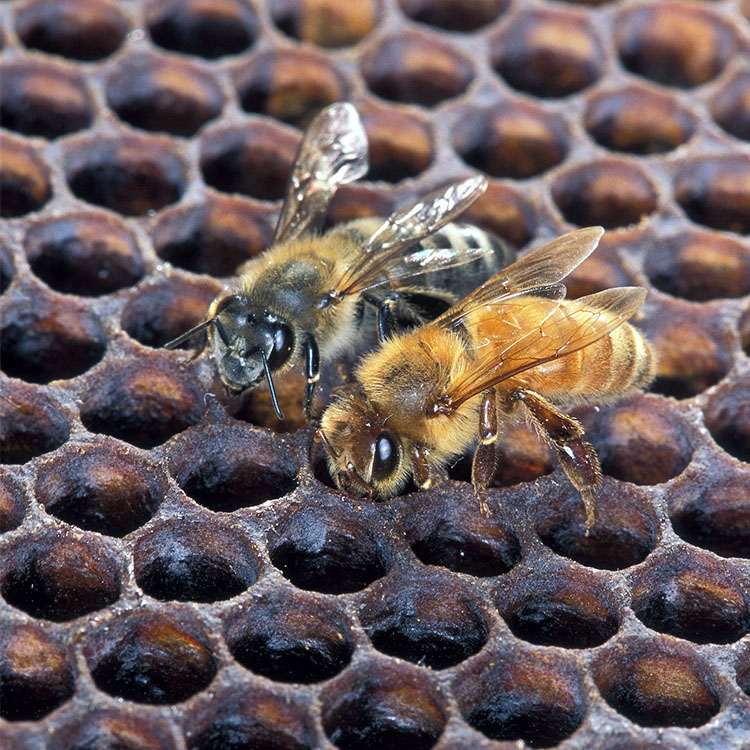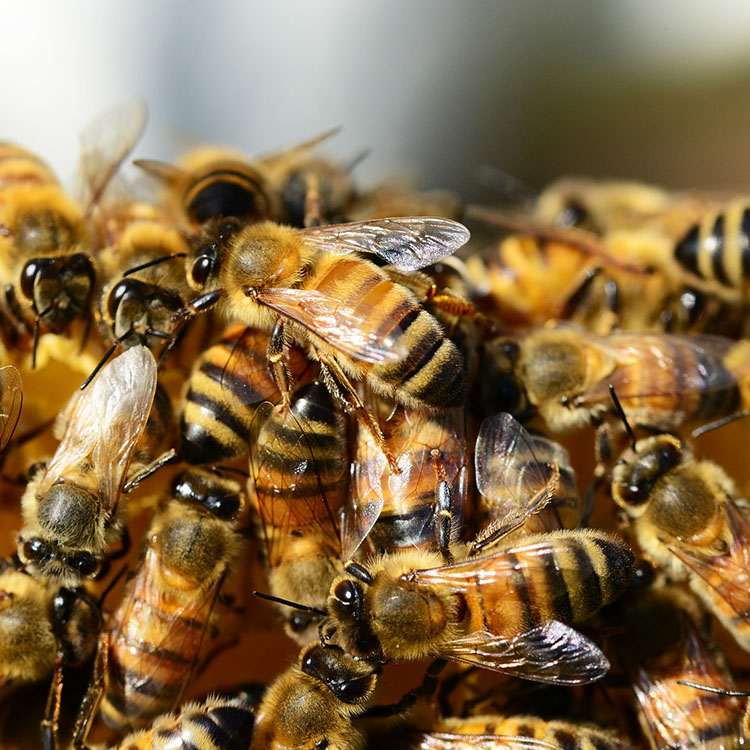European Bees vs. African Bees
European Bees and African bees have some subtle and some not-so-subtle differences. We will go into some detail about each of these types of bees below so that you can tell the difference between the two.

African Bees
The Africanized Bees are known familiarly as the "killer bee" because they can be extremely aggressive and attack in large groups. While their bee venom is as equally as strong as other types of bees, they attack in greater numbers and can cause a fatal overdoes of bee venom.
Swarming Habits of African Bees
African bees tend to swarm more often than other species of bees. Swarming is the process by which the bees mate and form their colonies. It is not wise to engage a group of african bees that are swarming, and as mentioned before, can prove fatal in humans if they are stung by such a large number of these bees.
Where are African Bees Found?
African Bees left the African continent in the 1950's and were recognized in the United States by 1985. They are an invasive species and are treated as such by wildlife removal experts and federal wildlife regulatory commissions. While they are of vital importance to the environment and local ecosystems, we are allowed to remove these creatures from residences due to the threat of fatality from bee stings.

Western Bees
These bees are also known as European Honey Bees and are found in North America by modern humans for the past 400 years, although fossils found in nevada place honey bees near Nevada 14 million years ago. It is thought that change in climate as well as the physical landscape may have caused a decline in honey bees in this continent in more recent human history.
Honey Bees–Do They Make Honey?
It seems like a silly question, but it's an honest one from most of our customers. The answer is yes! Honey bees can produce enormous amounts of honey. This can be bad if you are a homeowner with a honey comb inside the walls or attic of your home. In order to ensure the health and safety of you and your family, you should have these combs removed.
